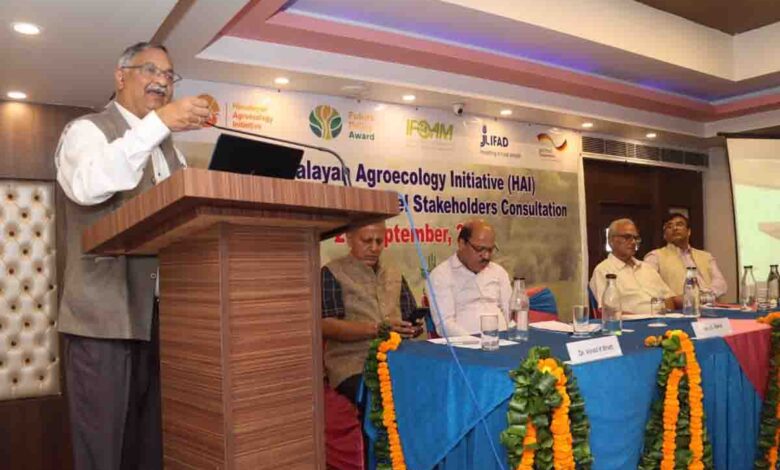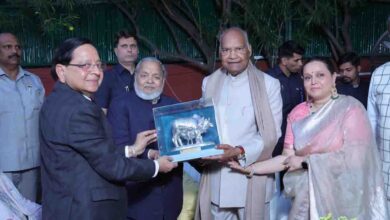Conserving biodiversity vital for enhancing Himalayan agroecology: Mathur

Friday, 27 SEPTEMBER 2024 | PNS | DEHRADUN
The entire Himalaya is a mirror of agroecology in itself. This vibrant food civilisation can be made successful only by conserving biodiversity. This success will prove to be a milestone in the direction of food sovereignty along with sustainable increase in the livelihood of farmers, the former chairman of National Biodiversity Authority, VB Mathur said. He was speaking as the chief guest at the meeting of stakeholders of Uttarakhand on agroecology.
He said, “Insecurity is rising in an alarming form and its solution lies in saving agricultural biodiversity. He said that the demand for Himalayan agricultural products is increasing, but the vitality of farming is falling in the same proportion. To deal with this irony, farmers, scientists, officials and policy makers will have to come together and reduce the production cost of crops. We also need to learn about the conservation of Himalayan environment and ecology from small countries like Nepal and Bhutan,” Mathur added.
Former principal scientist and head at ICAR-National Institute of Plant Genetic Resources, Bhowali, Ishwari S Bisht spoke on agroecological change of food systems in Uttarakhand, major challenges and opportunities. “’The farmer has the best knowledge of aspects ranging from production of crops to processing and consumption, but due to many obstacles in this essential process of agroecology, farming in the mountains of Uttarakhand is facing big challenges,” he said while also pointing to the barren landscape of Pauri, Almora Champawat and Bageshwar in the central Himalayas of Uttarakhand. He also stressed on the need to reduce the distance from laboratory to field and production to market by making the agricultural policy practical.
India representative at the Alliance for Biodiersity International, JC Rana said, “The Himalayan Agroecology Initiative (HAI) is a strategic effort that works in collaboration with governments and with the support of a broad group of stakeholders to support multi-stakeholder processes that help develop, build and implement a roadmap for agro-ecologically sustainable food systems. The primary objective of this effort is to improve the livelihood and sustainability in the three Himalayan countries-India, Nepal and Bhutan- and to empower farmers, farmer producer organisations and other key stakeholders to better benefit from public policies that support organic/natural agriculture, food processing and consumption.






